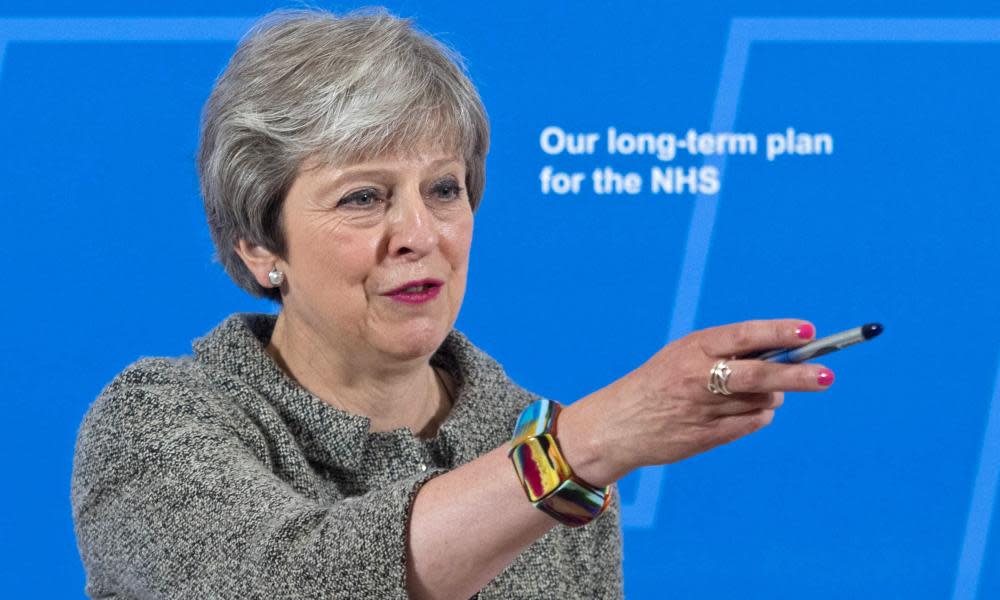The Guardian view on the NHS cash plan: the Brexit dividend claim is a lie

When she was interviewed on Sunday’s BBC One Andrew Marr programme, Theresa May knowingly and dishonestly suggested that leaving the European Union was the central dynamic behind her new NHS spending pledges. Having started by saying she was determined to secure the NHS’s future, she immediately invoked the shoddy Brexit campaign bus slogan of 2016 with implied approval. Then she talked about the money Britain would save by leaving the EU; finally she deliberately spoke in ways that would lead any unwary listener to assume that a so-called “Brexit dividend” was the windfall that enabled her to make the new spending pledge. Characteristically, Boris Johnson was even more mendacious, calling the pledge “a down payment on the cash we will soon get back from our EU payments”.
All of this was a lie. It disgraces Mrs May to tell such a whopper. True, by the time that she gave her speech on NHS spending on Monday, her words were rather more circumspect; the essential deception nevertheless endured. “Some of the extra funding” will come from money that now goes to the EU, she said at London’s Royal Free Hospital, “but the commitment I am making goes beyond that Brexit dividend.” That is true with bells on, since the NHS pledge dwarves any future savings on the UK’s Brexit payments.
That’s partly because the dividend is itself a pretence. The UK has agreed a £39bn divorce payment, plus more for the backstop agreement and further sums if it accesses EU programmes after Brexit. That’s without taking account of any weakening of the public finances – a sum put at £15bn per year by the Institute for Fiscal Studies – as a result of Brexit. But it is also because this scale of support for the NHS, welcome as it may be, can only be paid for in three ways: by cutting other spending programmes; by increasing the tax take; or by borrowing more. Ministers – more specifically the chancellor, Philip Hammond – have not yet settled on the key details and are still fighting over them.
There were others deceits in Mrs May’s speech, not least in her section on NHS history. There is also this week’s politics. It is possible that Mrs May is calculating that she needs to embrace the Brexiter position on the NHS because she knows she will shortly have to upset them on issues like a customs agreement or single market access, or because she expects to lose Wednesday’s vote on MPs’ right to stop her taking Britain out of the EU without a deal. Yet the ultimate criticism of Mrs May’s speech is that she has been unable to say where the money is coming from. The politics of this are massive. For 40 years, the Conservatives have been a tax-cutting party, so to tax income or wealth on the necessary scale would represent a historic (and desirable) change of direction. For eight years they have been an anti-borrowing party too, so to change tack there would be almost equally wise and epochal.
Putting more money into the NHS is desirable. The government’s commitment to do so is necessary and overdue. The sums announced on Monday – a front-loaded 3.4% real terms increase in current spending amounting to £20.5bn extra year for England, plus further sums for Scotland and Wales and to secure NHS pensions – are serious. But they cannot be explained as a consequence of Brexit, and the instant dismissal of that claim from backbench Tories, the IFS and the rightwing Institute of Economic Affairs, among many others (including some Brexit enthusiasts), underlines the sheer economic speciousness of the approach that Mrs May has so far adopted to one of the most profound decisions of her premiership.

 Yahoo News
Yahoo News 
